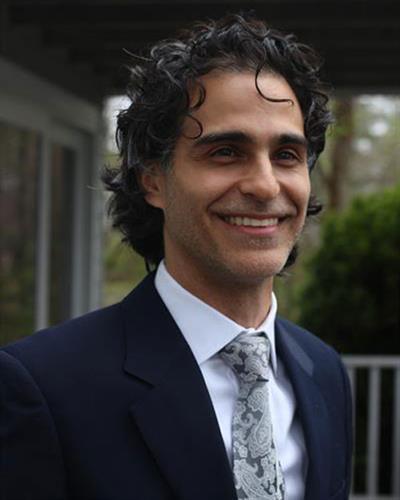
Tisch Library's "Affordable Course Materials Profiles" feature interviews with faculty & instructors who have received an Affordable Course Materials Award.
This interview is with Professor Vesal Dini, lecturer in the Department of Physics & Astronomy. Professor Dini received an award for Spring 2025. You can also read our conversation with Professor Dini's about his Fall 2023 project to incorporate a freely available textbook into his Intro to Physics course.
What department do you teach in? Which classes do you most commonly teach?
I teach the introductory sequence in the Department of Physics & Astronomy (that’s, Physics 1, 2, 11, 12, 13)
Briefly describe your project to use or create more affordable course materials for students.
I created a set of prelectures for Physics 13 (based mostly on lectures given by Hugo Beauchimin). Students studied these prelectures prior to coming to class, so that we could use class time more productively, in the form of discussing questions and problems relevant to the material designated for each class.
Students had the opportunity/option to “collaboratively study” the prelectures by viewing them Perusall.
What motivated you to use these new materials?
Introduction to Modern Physics (Phy-0013) is the third in a sequence of introductory courses offered by the physics department. It is considered a “gateway” course to the major, considered critical for both physics majors and engineers who take it. Moving forward it is being offered each semester with enrollments hovering at around 50 students/semester.
The textbook that is traditionally required is by Kenneth Krane and costs students about $130 new (according to the bookstore). Because I run a flipped classroom, I typically assign preclass study. For Physics 13, there aren’t any prelecture systems out there for this course. So I needed to create a prelecture system for students to study.
How were students impacted by the new materials? What was their reaction?
While students appreciated the idea of a flipped classroom, the majority did not take the preclass study seriously enough. I don’t know if it’s because of the course structure, student culture, lack of accountability, poor framing (on my part). I have to investigate this more. Further, my impression was that the students felt the prelectures were not sufficient in introducing the content. They may also have not recognized that confusion is a necessary part of learning, particularly in this course.
What was your experience incorporating these new materials into your course? How did the Tisch award support your work? Were there challenges?
Creating this content was the heaviest lift I’ve thus far experienced in my career as an educator. The Tisch award, along with staff support, helped greatly in the process, particularly psychologically. Just to know that the university acknowledges in some small way the effort that is required is very important.